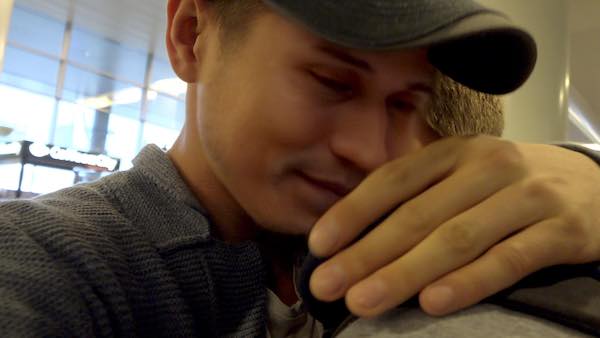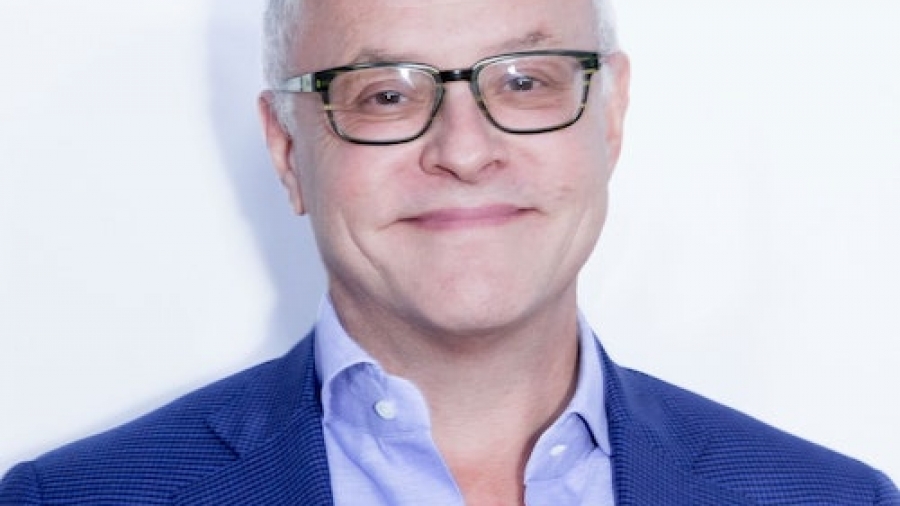Written by Jonah Azurin
Neal Baer is a human rights activist, sociologist, public health scholar, physician, showrunner, writer, and producer. He integrated all strands of his professions into a reputable career, as seen in his most recent role as an executive producer on HBO’s documentary film Welcome to Chechnya. Following a group of activists in the fight against the LGBTQ+ genocide in the Chechen Republic of Russia, this documentary has been widely received since its release in June 2020. In our chat, Baer shared how he began making films and his involvement with Welcome to Chechnya.
How did you get involved with filmmaking?
I was a graduate student in sociology at Harvard but I wasn’t happy being an academic. I went to a party and a friend of mine introduced me to her husband, documentary filmmaker Bestor Cram. He told me about what he does and it just clicked. Although I loved what I studied in sociology, I didn’t want to be an academic sociologist and [being a filmmaker] seemed to be a way to take my interests and put it into an art form. [Cram] told me that there was going to be a visiting professor at Harvard, Ed Pincus, who wrote many books on documentary filmmaking. I became obsessed and said I have to take his course! Since I was a graduate student and I hadn’t made a film yet, Pincus said I couldn’t take his class. Then he called me the next day, said he thought it over, and he would register me as an undergraduate so by the time [the school administration] figured it out, it would be too late. That changed my life because I made a film with a group of students called Jack’s Place and from there I applied to the American Film Institute as a Directing Fellow.
How did you come across Welcome to Chechnya as an executive producer?
I met with the producer Alice Henty and the director David France when they were in Los Angeles and they told me about the film. I was excited to hear about it because it included my interests in human rights, particularly LGBTQ+ human rights, self expression, and the politics of queer life in Russia and Chechnya. The footage had already been shot but not edited so I agreed to raise money for the film. I saw many cuts of the film then provided notes from each screening for clarity. It was interesting because you had to go into a room to watch it but had to leave your cell phones outside because of the strict protocols [the LGBTQ+ activists] instated to rightfully protect the identities of everyone in the film. The [victims] had to be protected because the president of Chechnya sent out a mandate to get rid of gays. By using Deepfake, we were able to match the expressions of the volunteers who gave us their permission to use their faces on screen to the victims’ faces. [The crew] had multiple cameras to capture each participant’s expression so they can algorithmically place the footage in the film. Deepfake can have a negative reputation but in this film we used it for good, for human rights, to get stories out there, and to protect the identities of the victims. It’s similar to my work with CRISPR, a tool that can potentially cure sickle cell disease and also have the possibility to create lethal bacteria and viruses but that doesn’t mean we don’t do the good because of the potential harm.
How did you and the team go about selecting the right footage for the film?
That was all David and the editors. I wasn’t formally sitting there with them while editing but I was there for a few sessions and gave notes about what wasn’t clear. One important element is that when I was watching it, it was before there were any [trigger] warnings about the intense footage obtained by the LGBTQ+ activists. We added the warnings so you can read and see that in the film.
Since the release of the documentary, what are the positive and negative effects that you’ve seen?
For positive effects, there is more information out there, especially since Chechnya is a closed and repressive society. Masha Gessen is the first person who wrote about it. They are a writer for the New Yorker and in 2017, they wrote about what was happening in Chechnya. That stimulated David to research and look into it but otherwise, it hadn’t been talked about; the genocide has been going on and now, it’s received a lot of attention. The Trump administration hasn’t really paid attention to it, but hopefully the Biden administration will.
For people who want to get into documentary filmmaking, especially exploring heavy but necessary topics like genocide, what advice would you give?
It’s always about the story, the emotion, the connection you have to the characters in the film, and the people you’re working with. We’re fortunate now that we have these advanced cell phones to make films in ways we couldn’t just a few years ago. With Welcome to Chechnya you couldn’t use a big camera with lights and huge equipment; [the crew] used hidden GoPro’s or cell phones. We’re fortunate now that we have these advanced technologies like cell phones to make films in ways we couldn’t just a few years ago. I’ve also done Participatory Films where we gave kids these cameras and we integrated their films into one big film. I worked on a short called Home Is Where You Find It with a young man, Alcides, an orphan from Maputo, Mozambique whose parents died of aids. In the film, he looks for family and a place to live because there is no foster care or orphanages there.

Where can people go to find more ways to help LGBTQ+ victims in Chechnya?
There’s a “Take Action” part on the film’s website that gives you actionable steps to help Chechen victims, Russian LGBTQ+ activist groups, Maxim Lapunov’s case (the first person to come forward about the persecution of gays in Chechnya), and more. This was inspired by my own website called actionlab.org where we give people steps they can take after they’ve seen and were inspired by a film. I call it bridging the gap between inspiration and action.
To find out more about this film and how you can help, please visit welcometochechnya.com and actionlab.org. Follow Neal Baer on twitter at @NealBaer and watch Welcome to Chechnya streaming now on HBO Max.

